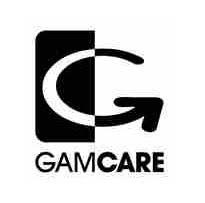It’s rare to see many – if any – nefarious acts at the final table of a major poker tournament.
But the recent European Poker Tour event in Barcelona was overshadowed by controversy as one of the final table players was accused of ‘angle shooting’ by his competitors.
The Main Event was well into its business end, and on day three, Quan Zhou and Nikolay Ponomarev found themselves seated next to one another.
The Russian was dealt a tasty A-K combo and took full advantage, leaving Zhou – armed with a pair of sixes – with the choice whether to call at 12,500 chips.
Then, something curious seemed to happen. Zhou appeared to move his cards towards the dealer before pausing, taking a moment to think and then dragging them back towards himself and making the call.
Did Zhou catch a glimpse of Ponomarev’s cards? Video evidence is inconclusive, although some pundits on social media have taken a screen grab in which it looks as if Zhou is just casting a furtive glance in the direction of his neighbor, who at the time just happens to be taking a look at his own cards.
The flop is made and A-K-4 comes out, at which time Zhou folds.
But that’s a flop which almost certainly would have seen Ponomarev go big given his two pair, and the information that Zhou might just have received possibly saved him from a heavy losing round.
It raised a couple of important questions: did Zhou try to gain an edge by pretending to fold his cards? And when, if at all, is angle-shooting acceptable?
How Can Angle-Shooting Be Punished?
Angle-shooting is the act of using deceptive tactics to get an edge on your opposition, usually by pretending to perform an action – in Zhou’s case, folding – in order to elicit some kind of reaction from your fellow player(s). It could be a tell-tale sign, a trigger movement, a facial expression and so on.
That information can then be used to your own gain, either by folding, calling or raising.
Cheating is cheating, but angle-shooting exists in that grey area between cheating and gamesmanship – but how can it be policed?
When the conduct of a player is brought into question, there has to be some kind of action from tournament officials. But what can they do? In the example provided, it ultimately would have been Zhou’s word against Ponomarev’s.
If found ‘guilty’, would Zhou have faced a chip deduction or been disqualified altogether?
If we accept that angle-shooting isn’t cheating, merely immoral, then really there is nothing that can be done about it.
Swede Makes Light of Controversy
In the end, whether Zhou did or didn’t engage in an act of angle-shooting was largely irrelevant.
Neither he nor Ponomarev made the final table, as the Swedish star Simon Brandstrom took the spoils and pocketed a handsome $1.5 million for his troubles.
The 37-year-old went head-to-head with Marton Czuczor of Romania, and with little to choose between them, they opted to settle for a deal in which Czuczor also pocketed a healthy $1.4 million.




